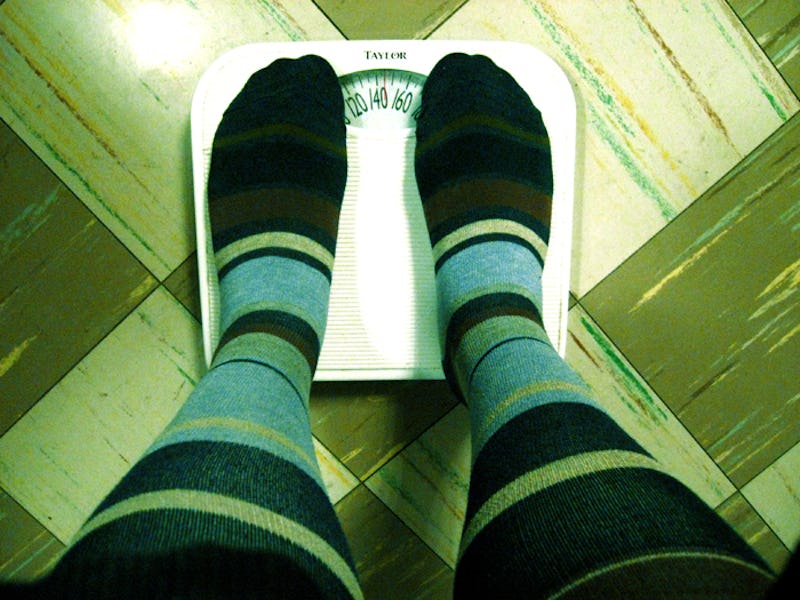Teens: Throw Your Scale in the Garbage Can
Self-weighing is directly related to increases in depression and weight concern among teenagers.

We know self-weighing — stepping on a little platform, holding your breath, doing it in the morning before you’ve eaten anything — is not fun. But it can be dangerous, too. A new study released today adds to the growing evidence that people, particularly teens, should not self-weigh. Just don’t do it. Eat healthy, run around — and don’t obsess about the numbers.
Researchers from the University of Minnesota took data from the 1,900 young adults who tracked their self-weighing behavior as a part of Project EAT. The teens took note of their ideal weight, body satisfaction, and depressive symptoms, while noting how often they self-weighed.
“Adolescent obesity is a public health concern, but body dissatisfaction and weight concerns are predictors of eating disorders,” said lead author Carly Pacanowski, Ph.D., RD, in a press release. “This makes it critical that obesity prevention programs avoid exacerbating these predictors by understanding how behaviors such as self-weighing affect teens.”
Teen girls in this study were noted has being particularly affected by self-weighing — females who reported increases in self-weighing over the 10-year period were more likely to have depressive symptoms and decreases in body satisfaction. All study participants experienced increases in weight concern and depression the more they used a scale.
This new study adds the growing body of research that connects self-weighing to harmful consequences. A 2012 study that drew its data from a different Project EAT report also found that teens who frequently weigh themselves are at an increased risk for dangerous health behaviors and poor psychological outcomes. This time the researchers specified what happened to teen boys — the ones who were frequent self-weighers were more likely to engage in extreme weight control behaviors, report depression, and use unhealthy muscle-enhancing supplements.
Compared to teen girls, there is relatively little known about the relationship between teen boys and body image. The most illuminating study came out in 2014 and revealed that high concerns with muscularity and thinness relative to their non-concerned peers led males to use supplements. Physique enhancing supplements were, in turn, related to a higher frequency of binge drinking. The study’s authors believed that because boys aren’t thought of as being body conscious, their health care providers may not be paying enough attention to the dangerous behaviors teen boys are developing to have their ideal body.
This role of physicians comes back into play with the study released today in the Journal of Nutrition Education and Behavior — it’s important that physicians pay careful attention to both teen males and females, who reportedly aren’t shy about the information that they are self-weighing.
“Clinicians should ask adolescent patients about self-weighing at office visits to determine any benefits our negative outcomes,” said Pacanowski in a press release. “Noting changes in the behavior over time can be helpful for investigating other, more concerning changes in well-being among young adults.”